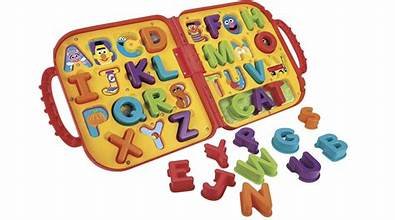Public Early Childhood Centres in St. Kitts Closed April 14-21
Paragraph 1: Overview of School Break in St. Kitts and Nevis
The public early childhood centers in St. Kitts, operated by the government, will observe a break from Monday, April 14th, to Monday, April 21st, 2025. This information was disseminated through a notice issued by the Education Media Unit (EMU) within the Ministry of Education in St. Kitts. This break coincides with the end of Term 2 of the 2024/2025 academic year, which officially concluded on Friday, April 4th, 2025. While the government operates early childhood centers in St. Kitts, Nevis does not have such government-run facilities. However, pre-schools on Nevis will also be closed during this period. Students and teachers are expected to return to their respective schools for the commencement of Term 3 on Tuesday, April 22nd, 2025. This return date takes into account Easter Monday, April 21st, which is a public holiday.
Paragraph 2: Context of the School Break
This school break falls within the broader context of the academic calendar for St. Kitts and Nevis. The academic year is typically divided into three terms, with short breaks between each term and a longer summer break. This specific break allows students and teachers a period of rest and rejuvenation before embarking on the final term of the academic year. The timing of the break coincides with the Easter holiday period, allowing families to observe religious traditions and potentially spend time together. This alignment of the school break with a public holiday period optimizes vacation time for families and minimizes disruption to the academic schedule.
Paragraph 3: Importance of Early Childhood Education
Early childhood education plays a crucial role in a child’s development, laying the foundation for future academic success and overall well-being. The early years are a period of rapid brain development, and high-quality early childhood education programs provide stimulating environments that nurture cognitive, social, emotional, and physical growth. These programs offer opportunities for children to learn through play, exploration, and interaction with their peers and educators. A strong foundation in early childhood can significantly impact a child’s readiness for primary school and their long-term academic trajectory.
Paragraph 4: The Role of Public Early Childhood Centers
Publicly funded early childhood centers play a vital role in providing access to quality education for all children, regardless of their socioeconomic background. These centers offer a structured learning environment with trained educators who implement developmentally appropriate curricula. They also provide essential services such as nutritious meals and health screenings, ensuring that children’s basic needs are met. The availability of public early childhood centers can contribute to greater equity in education and provide a pathway for children from disadvantaged families to reach their full potential.
Paragraph 5: Education System in St. Kitts and Nevis
The education system in St. Kitts and Nevis, like many Caribbean nations, is structured around primary, secondary, and tertiary levels. Primary education typically begins at age five and lasts for six years. Secondary education follows, lasting for five years and culminating in external examinations. The Ministry of Education oversees the education system, striving to provide quality education for all citizens. The government’s investment in early childhood education demonstrates a commitment to developing human capital from an early age, recognizing the importance of early interventions in shaping future generations.
Paragraph 6: Looking Ahead to Term 3
As the break concludes and Term 3 begins, students and teachers will return to their classrooms to continue the academic year. Term 3 is typically a busy period, focused on consolidating learning from the previous terms and preparing students for end-of-year assessments. The Ministry of Education likely has plans and initiatives in place to support schools and educators in delivering effective instruction during this final term. The focus will be on ensuring that students are well-equipped to progress to the next level of their education, whether that be transitioning from pre-school to primary school or moving up within the primary and secondary levels.
Share this content:












Post Comment